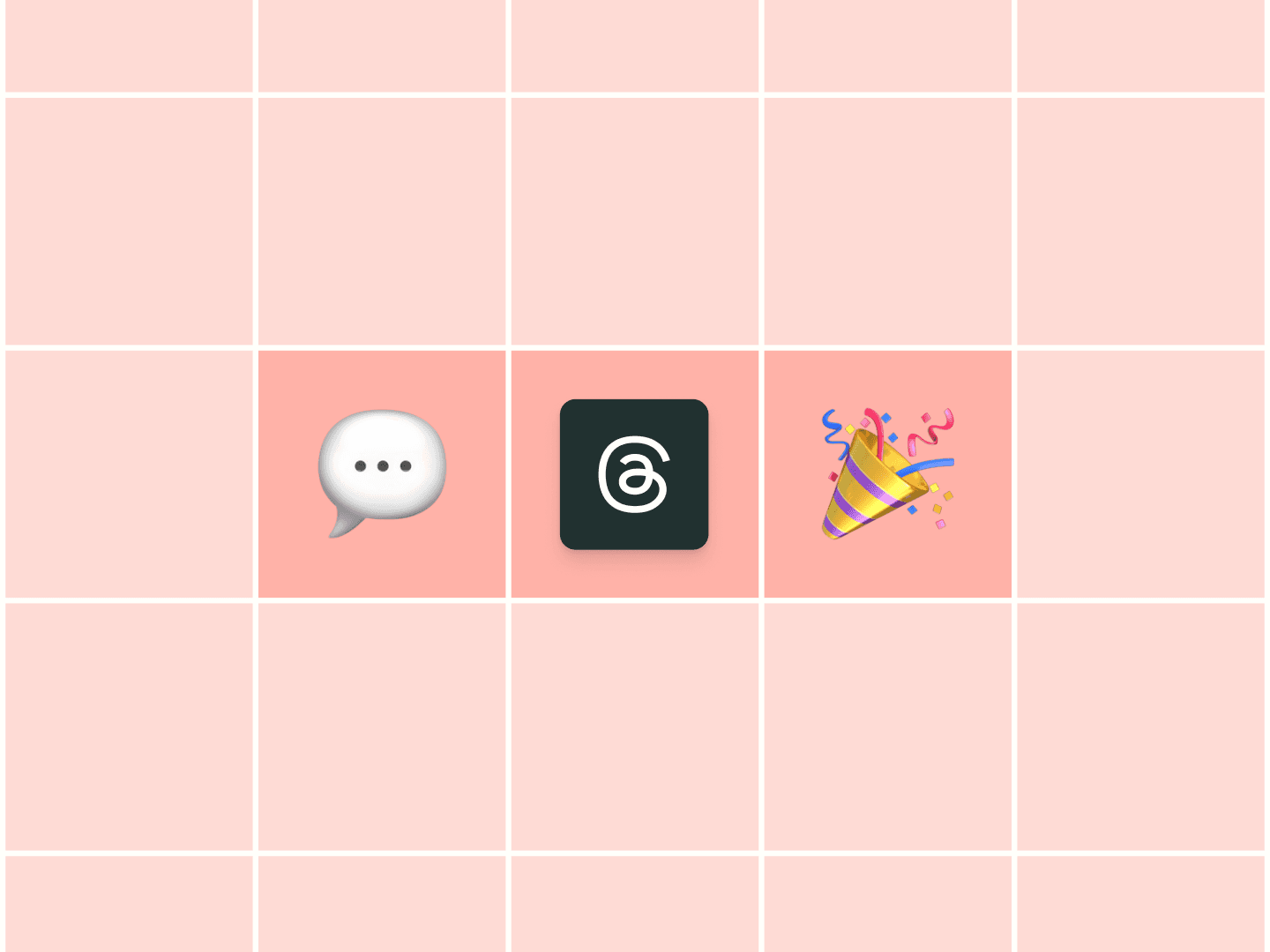Social media had a pretty interesting year, from the rise of the creator economy to the constant addition of new features and the dozens of X alternatives that came and went. We predicted a lot of it but not all of it. To understand how much changed, it’s important to reflect on the year, especially as the end of 2023 comes closer.
In the spirit of reflection, I was inspired to look at some of the predictions from our Social Media Predictions for 2023 and check in on their success (or lack thereof). This will not be the same as the analysis of what’s to come in 2024 (we’re working on that), but a look at the predictions for this year and, ultimately, how they turned out.
Spoiler alert: we got a surprising amount correct!
Extremely true: Increased use of AI and automation in content creation
This prediction was spot on, with tools like ChatGPT becoming integral in content creation and social media management. In the past year, we’ve seen explosive innovation and interest in AI, especially in creative work.
We received two specific predictions from two folks, Mohammed Asaduallah, CEO of Better with Benji and Daniel Sobey-Harker, Head of Community at Windscribe.
Mohammed predicted that social posts would be generated by ChatGPT after being trained with a company's brand persona. This is becoming a reality more and more, especially as AI tools incorporate features that allow you to provide context about you or your brand.
Daniel’s prediction that companies will mistakenly believe they can replace writers with AI tools was, unfortunately, true, as many creative and marketing teams within tech companies saw mass layoffs this year.
These layoffs can be attributed to several things. For example, layoffs disproportionately affect marketing roles because companies see them as being “less serious”. There have also been claims that some of these layoffs happened because companies falsely believe AI can “replace” certain human labor.
Throughout 2023, the integration of AI in content creation showcased its strengths and limitations. We came to many of these realizations for ourselves on the Buffer Content team and have put guardrails regarding how we use AI for creative work.
Overall, while AI tools have been proven to provide efficiency and consistency, they also brought to light the need for human oversight to maintain creativity, authenticity, and ethical standards in content creation.
The year taught us a crucial lesson: the future of content creation lies in the synergy between AI and the irreplaceable human mind.
Almost true: Unexpected collaborations between brands and creators
Natalie Sportelli, Director at Bullish, predicted that we would see many more creative and unexpected collaborations between companies, celebs, and influencers. And we say 2023 was truly a year of creative collaborations, but not necessarily unexpected ones.
We saw the increased focus on collaborative content by Instagram with the collab posts feature and paid partnership tags on TikTok and LinkedIn. Creator marketplaces like Passionfroot and Aspire IQ also helped fuel the brand-creator collaboration cycles we saw this year.
All in all, all eyes are on creative collaborations. As the tools and features that enable them evolve, it’s important to keep an eye on them, whether you’re on the creator side or the business side, to create campaigns that grab and hold people’s attention.
Very true: Regular people turning into creators
The prediction that everyday people would become creators, particularly on platforms like TikTok, was accurate in an unexpected way through the surge of user-generated content creation.
Kasey Bayne, founder of KB Consulting, predicted more "regular people" getting to share their voice, especially on video. Kasey predicted more people would become creators on TikTok, not in a way that necessarily becomes their full-time gig, but to share and be rewarded for the content they put out there. Spot on.
Not really: Hiring of social media managers per platform
Kendall Dickieson, founder at Flexible Creative, predicted that per-platform social managers will become a thing since brands can be more efficient and devote their attention to one platform.
Also, with nuances between platforms, social media managers will want to specialize and become experts at one or two platforms instead of spreading their attention to multiple.
This was only partially realized. While there was an increase in the need for platform-specific expertise, budget constraints often led to more multifaceted roles.
However, it’s important to note the increased interest in focusing on specific platforms instead of trying to be everywhere. According to research, if brands don’t see value in being on a platform, they’ll focus their efforts elsewhere. So, this prediction may just end up coming to pass.
True: Rise of celebrity social media personalities
Hayley Rodgers, Senior Social Media and Community Manager at Paddle, shared that dwindling budgets might lead to more consolidation of the social media manager role and a shift in skills needed to be successful.
This trend proved more or less to be true, with many brands leveraging personalities within their organization for social-first content creation. While they weren’t necessarily celebrity status, it’s clear that audiences love connecting with the people within the brands they engage with as long as the content is kept authentic and helpful.
One instance of this prediction in practice includes Liah Yoo, who is both a verified beauty creator on TikTok and the founder of Krave Beauty. Using her personal platform for her brand is an interesting choice because she can connect one-to-one with her brand and personal platform audiences.
@liahyoo Replying to @alytrippin def check out @KraveBeauty #tiktokshop to get a double discount during our for you sale. If you’re lucky, you can get this at 45% off (funded by tiktok, thank you!) good for customers and us! This promo is currently only available in the US as far as i know #acneskincare #bfcm
♬ Good parts Nightcore - 콩해니ო̤̫
Another example is Alie Mackintosh, founder of AYM Studio, using her platform to promote her brand and share fashion content with her audience. Her use of social is especially interesting for the same reason as Liah – she can answer audience objections and questions in real time with her content.
@alie.mackintosh The ballet bamboo wrap top is designed to create a cohesive outfit when worn with my dress designs. You can wear it reversibly too ✨ ad, my design created for my brand: @AYM Studio #fashiondesign #outfitideas
♬ original sound - alie.mackintosh
Finally, a great example of a brand-specific creator is Dan Toomey, who makes funny, educational videos for Morning Brew’s social media and has built a fanbase for himself outside of his day job.
@goodworkmb LinkedIn, uncovered #careertok #careeradvice #linkedin #corporatelife #career
♬ original sound - Good Work
True: Focus on brand building through owned platforms by creators
Creators indeed pivoted towards owning their content platforms, like newsletters and personal websites, a trend intensified by the unpredictability of social media platforms.
Jennifer Reardon, Communications Director at AltExchange, predicted that creators would hone in on email marketing and focus more on building their own brand and creating their own businesses than relying on brand partnerships.
This prediction aligns with how newsletters, in particular, saw a surge in interest and activity, especially with email marketing platforms like Beehiiv taking the creator economy by storm.
Lifestyle and food creator Nara Smith started a Substack after several audience members requested she share her recipes.
@naraazizasmith wearing @Everlane to make the perfect side dish or should I say main? #easyrecipes #galette #mushroom #holidaytiktok #everlaneonyou #sweaterstyle #fypツ
♬ original sound - Nara Smith
Lifestyle creator Tamsin Wong also started a successful Substack, monetized with a paid tier with exclusive content for her audience.
@maybetamsin next on rhubarbs tour of dog friendly stays - the cotswolds! thank you barnsley house for inviting us 🫶🏼 #dogfriendly #prstay
♬ Golden Hour: Piano Version - Andy Morris
Even celebrities have jumped on the newsletter bandwagon, most notably Arnold Schwarzenegger with Arnold’s Pump Club (which is hosted on Beehiiv), which also has an accompanying podcast.
Organic and high-quality content overcoming paid social spend
This shift became more evident as high-quality, organic content started gaining precedence over paid ads, aligning with changes in data privacy regulations.
There’s been a surge in this type of marketing from brands, especially on short-form video platforms like TikTok and YouTube Shorts. The content feels like it connects better because it isn’t any different from what you’d see in your social media feed during a normal scroll. In fact, when something looks too polished, consumers assume it must be fabricated.
One interesting instance of this prediction in action is the growth and success of the Queensland FC clothing brand, a real company making clothes for a fake football team. Most of the content features founder Ken Sakata talking through the items' inspiration or the brand's fascinating story.
Similarly, the content strategy of tech accessories brand Spigen is an example of this prediction. The brand reviews other tech products on its social media the way you’d expect a tech influencer to. Since the brand makes cases for different devices, they can do this without fear of losing brand equity.
This gives them search value, and the consumer trust is usually assigned to individual influencers while still allowing them to promote the products they actually sell.
@spigenworld very satisfying google pixel 7a unboxing #tech #madebygoogle #pixel #android #asmr #unboxing
♬ original sound - Spigen
Tally of successes and misses
So, how many did we hit, and how many did we miss?
- Hits: Most predictions regarding the evolution of personal branding, the role of AI, and the shift towards more genuine content creation and user-generated content were highly accurate.
- Misses: We might have overestimated the speed at which certain trends, like the complete specialization of social media roles, would take hold.
Although these predictions aren’t based on empirical data but rather informed opinions, it’s always satisfying to see how many come true.
What’s next?
The biggest takeaway from the success of these trends is the increasing importance of authenticity and depth in content, which dominated the social media and creator economy landscape in 2023.
Another key insight is the pivotal role of AI and automation in shaping content strategies.
The emergence of everyday creators as influential voices highlighted the democratization of content creation.
What do you think about our predictions? Did you notice anything that would corroborate the accuracy? Share with us in the comments below!
Try Buffer for free
190,000+ creators, small businesses, and marketers use Buffer to grow their audiences every month.




